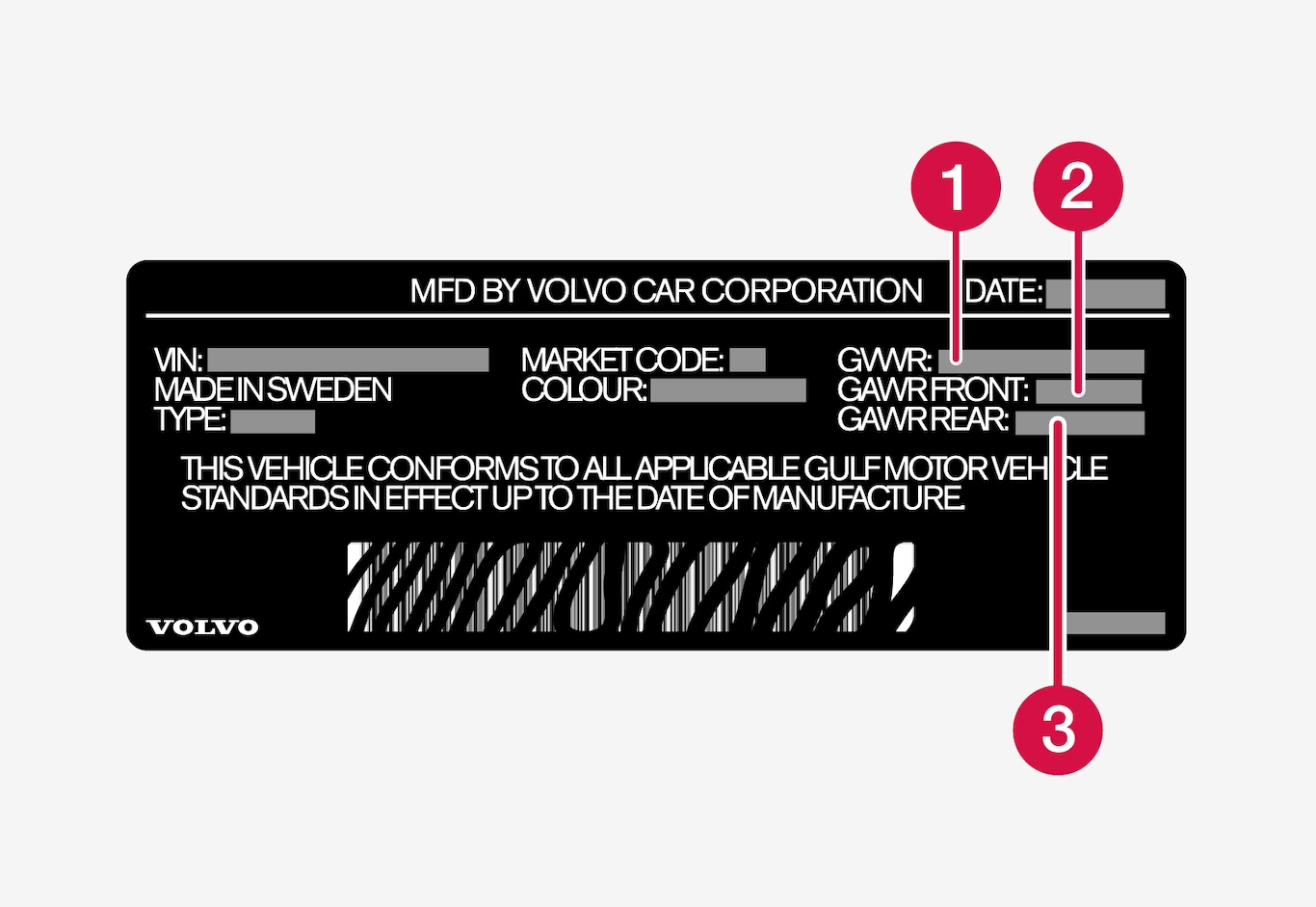Weights
Max. gross vehicle weight, etc. can be read on a label in the car.
Kerb weight includes the driver, the fuel tank 90% full, plus and all oils and fluids.
The weight of passengers and accessories, and towball load (when a trailer is hitched) influence the load capacity and are not included in the kerb weight.
Permitted max. load = Gross vehicle weight - Kerb weight.
Note
The documented kerb weight applies to cars in the standard version - i.e. a car without extra equipment or accessories. This means that for every accessory added the loading capacity of the car is reduced correspondingly by the weight of the accessory.
Examples of accessories that reduce load capacity are the different equipment levels (e.g. Kinetic, Momentum, Summum), as well as other accessories such as towbar, load carrier, space box, audio system, auxiliary lamps, GPS, fuel-driven heater, safety grille, carpets, cargo cover, power seats, etc.
Weighing the car is a certain way of ascertaining the kerb weight of your own particular car.
Warning

 Max. gross vehicle weight
Max. gross vehicle weight Max. front axle load
Max. front axle load Max. rear axle load
Max. rear axle load
Max. load: See registration document.
Max. roof load: 75 kg.